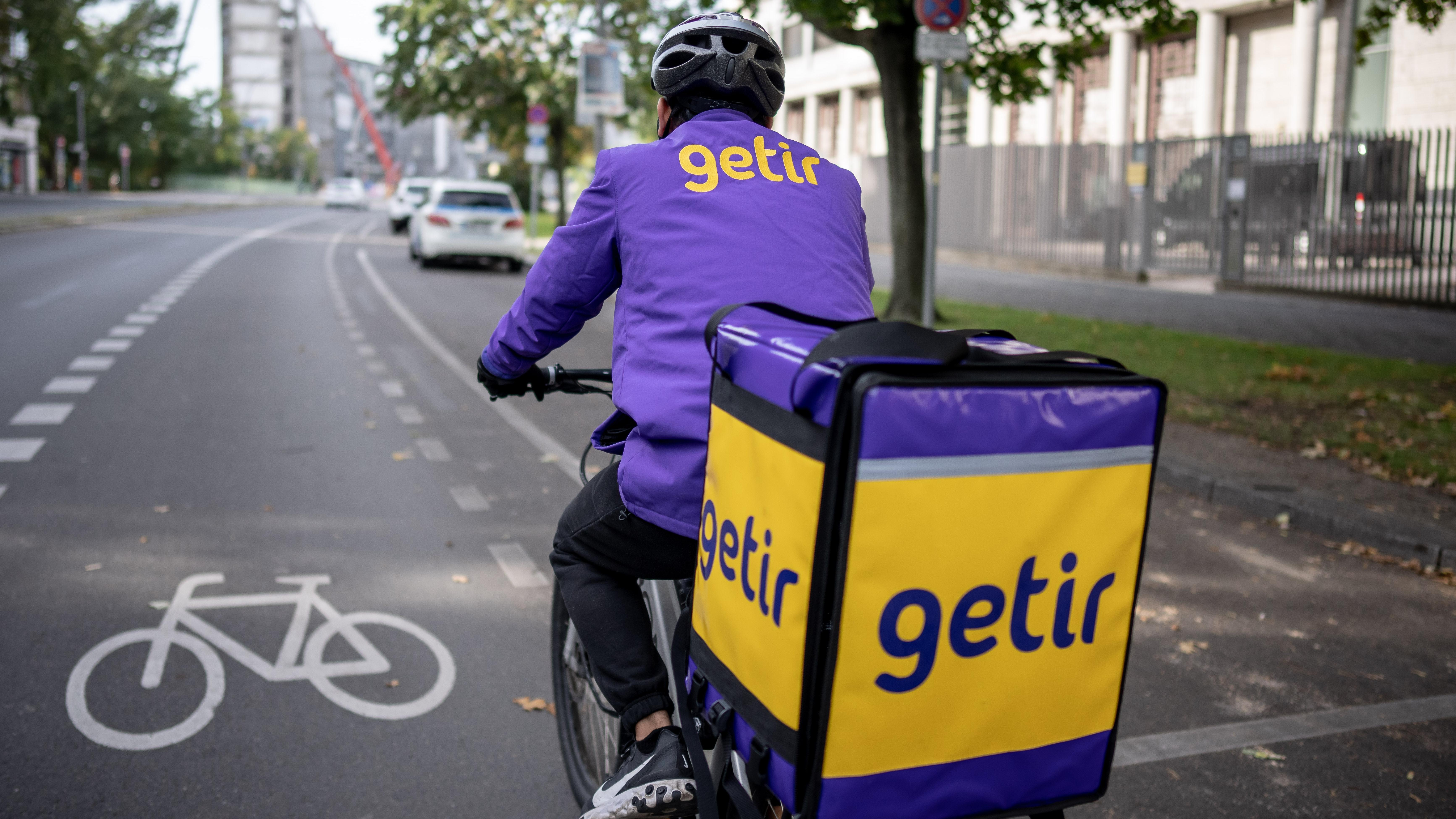Nobody Really Needs Grocery Delivery In 15 Minutes
The cracks in the rapid grocery delivery system are revealed as companies start to shutter.
Everywhere I look in Chicago these days, I catch glimpses of purple and yellow clad bikers on purple and yellow electric bikes zooming through traffic with a purple and yellow box strapped to their backs. They're delivery drivers for Getir, a horrifically named grocery delivery service that promises to bring your groceries right to your door in "minutes"—an initial flyer I received in the mail specified 15 minutes or less. This company in particular is now available in Chicago, New York, and Boston, and there are others like it popping up all across the country. According to Forbes, it's already a multibillion-dollar industry.
When I see these delivery people zipping around town, I'm not impressed by how quickly someone is getting their weekly market haul. Instead I find myself worrying about all the inevitable accidents, whether that be simply a container full of eggs cracking or the pressure to complete a delivery in mere minutes making the driver reckless enough to increase the likelihood of a crash. And there are even greater effects on small business and local economies to consider before drinking the Kool-Aid that businesses like Getir, Gorillas, and Jokr have to offer (I mean c'mon, these names even make them sound like supervillains).
How do rapid grocery delivery services work?
The bulk of these companies seemed to have been launched during the pandemic, catering to folks who were no longer comfortable leaving the house for groceries. From the consumer perspective, it's no different from ordering food via Uber Eats or shopping on Instacart: You download the app, place your order, and wait. On the business side, though, things are much more complicated. A recent episode of NPR's Planet Money gets into the details.
First, these companies need to set up "dark stores" or essentially mini-warehouses where the product is kept, Planet Money host Wailin Wong explains. Her cohost Erika Beras visited a Gorillas location and discovered it to be a very harshly lit space with narrow aisles where all items were sorted according to a "planogram," a sort of blueprint of everything the store has to offer sorted based on what items customers buy together the most. The sparkling water varieties might not all be stocked in the same area, for example, but a selection of the various items someone might need for a party will be.
Once the order comes in, it's a race against the clock based on the short delivery window the customer was quoted. One person does all the picking, scanning items as they go, and even the carts that person uses to amass the order are designed to go faster than your typical supermarket cart.
Alcohol is not always available in the dark stores, so those orders might get redirected to a local convenience store. This means the next person in the process, the driver, actually needs to make two stops. Already the flaws in the system are obvious.
The downsides to rapid grocery delivery services
Even though this is still an extremely new industry, there are already signs that it won't last. CNN reports that just last week two rapid grocery delivery services, Fridge No More and Russian-based Buyk, shut down, the former because of funding that fell through and the latter because of issues with Russia's sanctions. Money could continue to be an issue for these kinds of companies. Forbes reports that based on its current model, Jokr was allegedly losing $159 on every order fulfilled.
The problem is that people using these apps aren't doing full grocery runs, which makes it harder to restock in bulk at a cheaper price. And the likely reason people aren't ordering more at once is because of the company's touted quick delivery times. When you're restocking your fridge and pantry, you take your time putting together the order and making sure you have everything you need. It's the impulse buys for late-night munchies or the sudden realization that you are out of milk and need it now for a recipe that makes quick delivery options appealing.
In big cities, these fast delivery options are threatening the livelihood of mom and pop bodegas and corner stores that usually serve that purpose. Not to mention that city streets make it more difficult to promise any sort of ETA. Between traffic, construction, weather, and simple human ability, there is a great likelihood that orders won't arrive on time.
If these businesses are unprofitable and not delivering on promises to customers, are they really helping anyone at all? I guess at the very least, those delivery bikers are getting a good workout every day, so long as they don't end up in a dangerous situation while they're at it.
